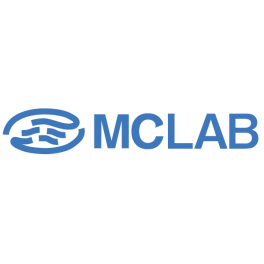 View full size
View full size
- Nucleic Acid Analysis
- Protein Analysis
- Biochemical Reagents
-
Enzymes
- Thermophilic DNA Polymerases
- Mesophilic DNA Polymerases
- Restriction Endonucleases
- Reverse Transcriptase and RNA Polymerases
- DNA/RNA Ligases
- RNases
- Proteases
- Nucleases
- Kinases
- Phosphatases and Sulfurylases
- DNA Repair Proteins
- Single-Stranded DNA Binding Proteins
- Chaperon Proteins and Disulfide Bond Isomerase
- Gene editing
- Molecular cloning
- Clinical diagnostics
- Laboratory instruments
- Software
- A&A Biotechnology
News
-
Czech Annual Cancer Research Meeting 2024
In the fall, we will participate in the 19th Czech Annual Cancer Research Meeting, which will take place in Olomouc from November 18 to 20, 2024, at the NH Collection Olomouc Congress Hotel. This pre...
Read more -
Symposium on Biology and Immunology of Reproduction 2024
Come visit us at the Symposium on Biology and Immunology of Reproduction, taking place at the Liblice Castle from October 13th to 15th. We look forward to meeting you after this wonderful summer!
Read more
 View full size
View full size
Description
Placenta growth factor (PlGF) is a member of the PDGF/VEGF family of growth factors. PlGF induces monocyte activation, migration, and production of inflammatory cytokines and VEGF. These activities facilitate wound, bone fracture, and cardiac repair, but also contribute to inflammation in active sickle cell disease and atherosclerosis. PlGF can also inhibit TIMP3 expression in the spleen, leading to immune triggering of hypertension.
Alternative splicing results in at least three human mature PlGF forms containing 131 (PlGF-1), 152 (PlGF-2), and 203 (PlGF-3) amino acids (aa) respectively.
Full Name
Placenta growth factor 3
Source
E. coli
Species
Human
Accession #
P49763
Molecule Weight
The mature recombinant human PlGF-3 is a 22.8 kDa protein (19-221aa).
Purity
> 95 % as determined by SDS-PAGE
Endotoxin
< 0.1 EU per μg of the protein as determined by the LAL method
Activity
Measured by its binding ability in a functional ELISA. When Recombinant Human VEGF R1/Flt‑1 Fc Chimera, aa 27-328 is immobilized at 2 μg/mL, 100 μL/well, the concentration of Recombinant Human PlGF-3 that produces 50% of the optimal binding response is approximately 0.6‑3 ng/mL.
Storage
-80 °C, avoid repeated freeze-thaw cycles.
Storage Buffer
PBS
Cart
Payment gate



